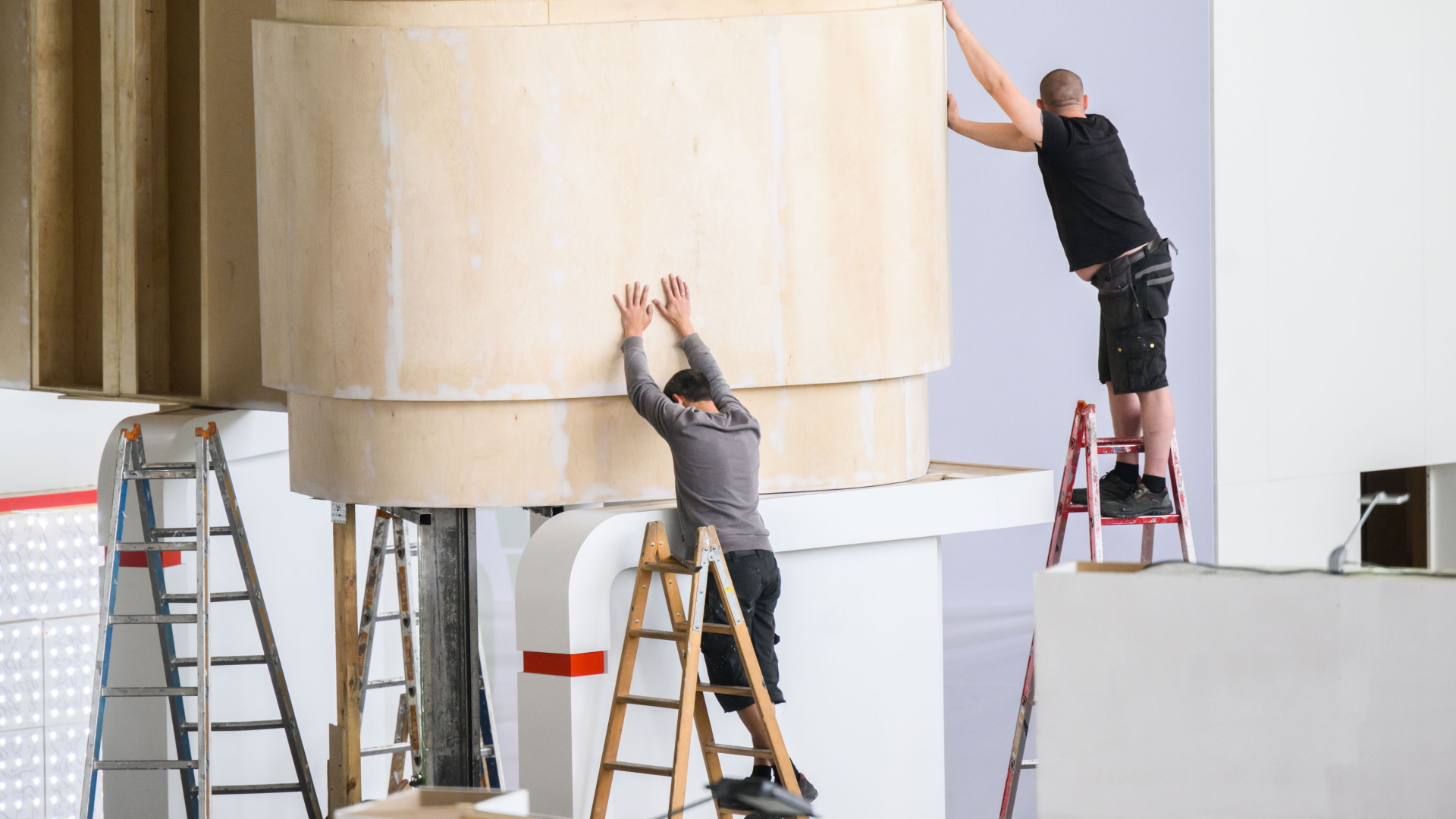Status: 05/29/2022 09:33 a.m
–
–
–
After two tough years, the trade fair industry dares to make a fresh start. The Hanover Fair marks the start of the trade fair summer. The tourism industry and gastronomy are also hoping for a new boost.
by Notker Blechner, tagesschau.de
–
–
–
–
Finally trade fairs again: The self-proclaimed “trade fair city” of Hanover is preparing for a wave of visitors arriving at the Hannover Messe industrial show. Tens of thousands of overnight guests are expected in hotels, guesthouses and private accommodation. The industrial fair is an important economic factor. It generates millions of euros in added value.
This income has not materialized in the last two years. Because in 2020 the Hannover Messe had to be canceled for the first time due to the corona pandemic. And in 2021 the leading industry trade fair only took place virtually.
70 percent of the trade fairs have been canceled since 2020
Across Germany, around 70 percent of the trade fairs were canceled in 2020 and 2021. The association of trade fair companies AUMA speaks of an economic damage of 55 billion euros from the corona pandemic.
It was the worst crisis of the post-war period for the otherwise spoiled industry. Sales shrank from more than four billion euros to 1.2 billion euros within a year. Almost all exhibition companies slipped into the red. Some had to be backed by local and regional public shareholders. The state of Hesse and the city of Frankfurt helped the Frankfurt trade fair company with fresh equity of up to 250 million euros.
Even this year, the trade fair business got off to a very slow start. Of the 140 events planned for the first quarter, only around 20 could be held, most of them in March. According to the industry association AUMA, only about half of the around 40 planned trade fairs took place in April.
Economic factor of 28 billion euros per year
Trade fairs are still an enormously important economic factor for cities and regions. According to AUMA calculations, trade fairs in Germany before the pandemic made an annual economic contribution of 28 billion euros. “Up to 230,000 jobs depend on the German trade fair industry,” says a spokeswoman for AUMA. In addition to trade fair organizers and trade fair construction, these include the hotel and catering trade, trades, services and logistics, transport, trade and the advertising and creative industries. Business travel tourism in particular thrives on trade fair and congress guests. Hotels do a large part of their business with trade fair guests during the non-holiday periods. Local gastronomy and taxi drivers also benefit from the trade fair visitors.
“Trade fair cities” such as Hanover, Frankfurt and Berlin are now hoping for good business with the generous guests. However, the effect is likely to be temporary. Because more than half of the trade fairs will take place in summer this year. Part of it was postponed from spring to now due to the corona restrictions. And: For fear of new infections picking up again in late autumn and winter, many companies have brought their trade fairs forward. The summer of trade fairs will therefore only provide many cities with positive economic impulses in May, June and a little bit in July.
Many trade fair dates at the same time
Exhibitors and visitors are spoiled for choice. The world’s largest environmental trade fair IFAT in Munich and the business travel trade fair IMEX in Frankfurt take place at the same time as the Hanover Fair. Later in June, E-World in Essen runs parallel to Analytica in Munich.
Despite the industry’s comeback, trade fairs will not be the same in the future. “We are preparing for the fact that the trade fairs will be smaller in the future,” explains the CEO of Deutsche Messe AG, Jochen Köckler. The trade fair companies should no longer focus on maximizing exhibitor stands and visitor numbers. “The square-metre thinking is antiquated,” says Wolfram Diener, head of Messe Düsseldorf.
Hybrid concepts prevail
In some cases, hybrid concepts are also likely to prevail. This was already evident at the German Congress of Internists. The event took place in presence in Wiesbaden. Those who wanted could also follow the conferences virtually from home or abroad.
According to a survey by Messe Frankfurt, 70 percent of the customers surveyed would like analogue trade fairs and 27 percent hybrid trade fairs. Only three percent would like purely digital trade fairs. The absolute majority of customers want trade fairs as personal encounters, explains Frankfurt trade fair boss Wolfgang Marzin.
Frankfurt music fair disappears
Not all trade fairs are likely to survive the change. The Frankfurt Music Fair has already fallen victim to the crisis. After more than 40 years, the fair, where instrument manufacturers, musicians and trade visitors met, is closed. The organizers justify the decision with the lack of economic perspective. The President of the Musical Instrument Manufacturers Association, Gerhard Meinl, spoke opposite tagesschau.de from a hard hit. As a small consolation, the Frankfurt Music Prize was awarded to Peter Maffay in the Paulskirche this year.
Even the future of the Berlin IFA is uncertain. According to media reports, the IFA consortium is currently arguing with Messe Berlin about a new contract. If there is no agreement, the radio fair could be relocated to Frankfurt or Munich.
Association calls for blank checks for trade fairs in winter too
So that there is no new crisis in the trade fair industry in late autumn and winter, the industry association AUMA is demanding a kind of free ticket from politicians. “Legislators must now ensure that trade fairs can also take place in the coming winter months – and without any access or capacity restrictions,” explained Philipp Harting, Chairman of the Board of AUMA. There must be “trade fair feasibility rules” instead of bans, hygiene concepts instead of upper limits. “Otherwise we’ll be talking about a trade fair half year to forget,” he emphasized. “We can no longer support another wave of closures.” The industry cannot cope with this again.
–


